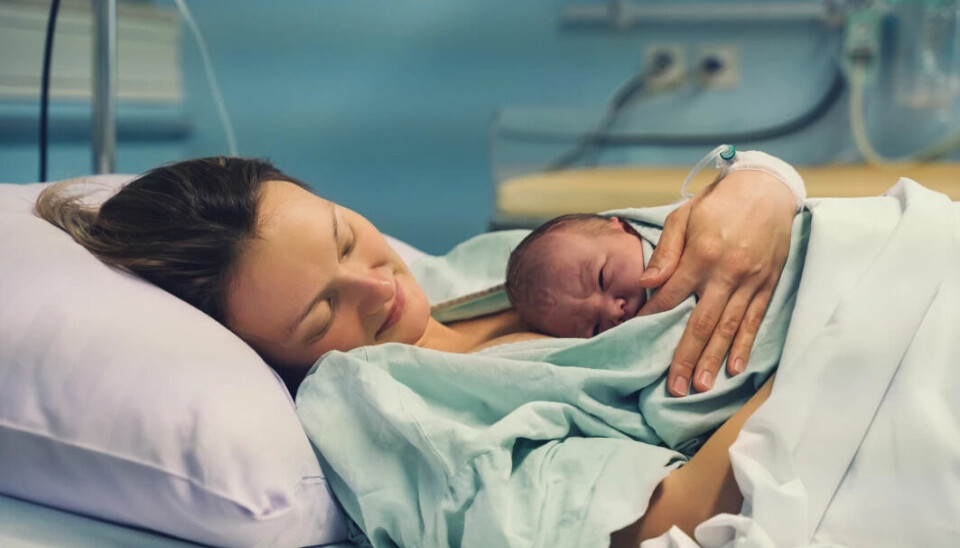
Caesarean sections do not increase the risk of newborns acquiring hospital bacteria
The gut microbiome in newborns is affected by the method of delivery. However, Norwegian research does not indicate that children born by caesarean section ingest unwanted bacteria to a greater extent.
Previous studies have shown a big difference in the gut microbiome of babies, depending on whether they were born vaginally or by caesarean section.
In the case of vaginal birth, the baby acquires the mother's gut microbiome, which likely protects the babies against several potentially scary bacteria.
A study from the University of Oslo (UiO) has investigated, among other things, if the type of birth could have anything to do with which unwanted variants of different bacteria the babies may ingest.
No hospital bacteria found
The findings were recently published in Nature communication.
The researchers did not find hospital bacteria in either the babies who were born vaginally or those born by caesarean section.
“This is good, because in that case they would have a higher risk of getting infections that are difficult to treat,” Professor Jukka Corander tells NTB. He is a researcher at the Department of Biostatistics at UiO.
Can be dangerous
Hospital bacteria are bacteria that, despite strict hygiene, survive in hospitals all over the world. Some hospital bacteria can be dangerous for people with weakened immune systems.
Also, resistant bacteria would put the babies at higher risk of getting infections that are difficult to treat. The researchers found only some resistant bacteria in the newborns, and no more in the children born by caesarean section than in those born vaginally.
A caesarean section is a surgical intervention that entails a higher risk of complications for both mother and child, compared to a normal birth. It is therefore only performed when absolutely necessary.
Figures from the Medical Birth Registry of Norway (link in Norwegian) show that 15.6 per cent of all births in 2021 were caesarean sections. A third of the caesarean sections were planned.
———
Translated by Alette Bjordal Gjellesvik.
Read the Norwegian version of this article on forskning.no
Reference:
Mäklin et al. Strong pathogen competition in neonatal gut colonisation, Nature Communications, vol. 13, 2022. DOI: 10.1038/s41467-022-35178-5
------



































